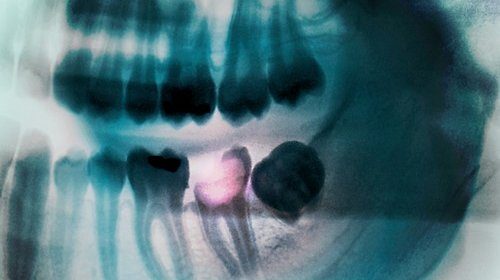A dental plan could prevent billions of cases of disease and

Researchers call for a radical shift in dealing with oral and dental diseases. Around 3.5 billion people are suffering, therefore, in caries or gum disease – largely ignored by the global health care and policy. Good care would have been able to prevent most of these diseases, the experts are sure.
“Dentistry is in crisis,” says Professor Richard Watt from University College London (UCL), one of the authors of a series of articles on these topics in the British journal “The Lancet”.
In highly developed countries, the treatment in the foreground, standing in the modern dentistry, for example, is much to strong, he and twelve other international experts criticize. It would be better to focus on prevention. The scientists from ten countries, including the United Kingdom and Germany, complain that in the field of dentistry have been disconnected for too long from the General health care.
Untreated caries – a world-wide Problem
The result is that While in the case of dental caries of children in the past decades, great progress has caries in permanent teeth is still one of the largest health problems worldwide. This also applies to Germany. In Germany, nearly 41 percent were in 2017, and untreated caries in permanent teeth, this is data from the Institute for Health Metrics and Evaluation at the University of Washington show.
According to the German study on oral health, the number of carious, missing or filled teeth has fallen in the past few decades significantly. Accordingly, 11,2 teeth of the 35, however still – to 44-on-Year caries experience (for comparison: in 1997 there were 16,1 teeth).
Stefan Listl, Co-author of the current study, the situation in Germany is still a need for action. While going here, output in the global comparison with the most for dental treatments, says Listl, one of the researchers at the University clinic in Heidelberg in the area of health Economics. Many people suffered but still avoidable consequences of such diseases. The resulting loss of productivity amounts to more than twelve billion euros a year. “There is too much emphasis on high tech rather than on Prevention.”
Also is it still the case that people from lower Educational levels had significantly more tooth problems. “With the supply model in this country, you can go far, but how can you reach them, to never go to the dentist?”, ask Listl. Not many people are aware of how important Dental hygiene is.
How the sugar industry influenced the WHO
Also critical, the researchers assess the role of sugar-, food – and beverage industry. Your influence could lead to the fact that the focus will dedicate placed on commercial products, such as toothpaste with fluoride, mouthwash or sugar-free gum instead of the actual causes about of tooth decay. So, the consumption of sugar, the main cause for the destruction of teeth increases, especially in less developed countries rapidly.
As a concrete example, the researchers mention the influence of the sugar industry on the recommendations of the world health organization (WHO). In 2003, a Committee of Experts came to the conclusion that added sugar should make up less than ten percent of the daily calories. The global sugar industry did, however, lobby successfully against it, so it did not make the recommendation in the published WHO Report, write the authors. Only in 2015, the organization has pronounced finally, officially this recommendation.
In the Video: To the dentist in the gymnasium – a mass investigation in the United States
